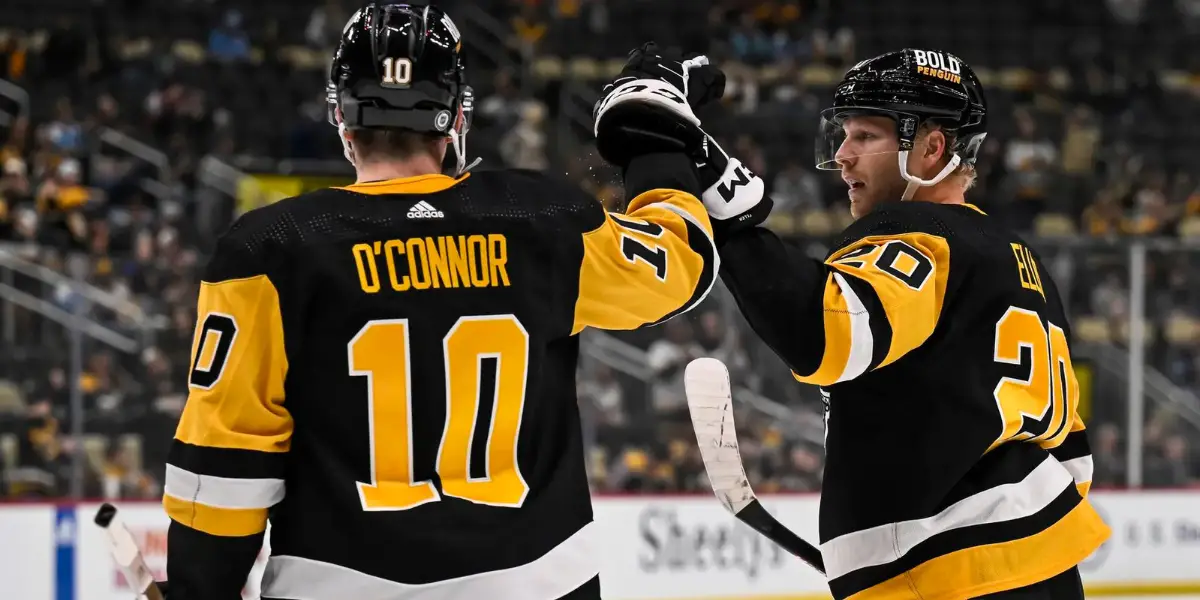
Throughout the past few seasons, one of the biggest struggles for the Pittsburgh Penguins has been finding a consistent group of bottom-six forwards. Whether due to injury, age, or just plain lack of chemistry, there has not been much to say about the Penguins’ bottom lines over the past couple of years. However, this offseason was one of many changes for the Penguins, and their forward group is no exception.
Out of ten depth forwards that rotated through the Penguins roster last season, only three are still with the team: Jeff Carter, Alex Nylander, and Drew O’Connor. The Penguins lost the likes of Teddy Blueger, Josh Archibald, Ryan Poehling, Brock McGinn, and Danton Heinen. These players played significant roles for the Penguins’ 3rd and 4th lines and could have added to the forward group if brought back this year. However, it was apparent after last season that something needed to change, and GM Kyle Dubas decided that what the bottom six needed was a complete overhaul. Undoubtedly, Pittsburgh’s bottom six will look remarkably different this year, but will it be for the better?
Offseason Signings and Recent Acquisitions
On the opening day of free agency, Pittsburgh signed four forwards to add to the bottom two lines. First, unrestricted free agent Matt Nieto, who previously played for the San Jose Sharks, was signed to a two-year contract worth $900,000 annually. Next, the Penguins signed centerman Lars Eller to a two-year $4.9 million deal ($2.45 million AAV). The veteran centerman played seven seasons with the Washington Capitals before being traded to Colorado at this year’s trade deadline. Left-winger Joona Koppanen was next to be signed. Koppanen, who previously played for Boston, was given a two-year deal with an annual value of $775,000; however, since he has only ever played five NHL games, this signing was most likely more of a depth addition since he won’t probably crack the starting roster. Finally, center Noel Acciari was signed to a three-year deal worth $2 million annually. Acciari, who played 23 games for the Toronto Maple Leafs last year, is a solid two-way forward and is excellent in the faceoff circle.
Over the following week, Pittsburgh signed three more depth forward pieces: Vinnie Hinostroza, Andreas Johnsson, and Radim Zahorna (who previously played in the Penguins organization).
Pittsburgh also signed multiple players to Professional Tryout (PTO) contracts just before the beginning of training camp. Libor Hajek, Austin Wagner, Colin White, and Mark Pysyk were all invited to participate in the Penguins’ training camp and preseason. All four of them had a legitimate chance to make the cut at the start of the preseason, but it seems that the one who has made the most significant impact throughout is Colin White. White cracked the roster in the Penguins’ final preseason game against Buffalo on October 6th, playing alongside Lars Eller on the third line.
One other acquisition that could be very impactful for Pittsburgh is the waiver claim of Winnipeg Jets forward Jansen Harkins. He also played in the Penguins’ final game of the preseason on the third line with Eller and White. It’s plain that Kyle Dubas wants to reconstruct Pittsburgh’s bottom six, and he’s collected quite a large pool of players to choose from. But what will it end up looking like?
Projecting The Bottom Six
Dubas has set the team up well for variety. There are a lot of versatile players that he has added to the system, which will be helpful both when players are injured as well as when they just aren’t playing well. This is significant because the Pittsburgh organization has not had that kind of depth for the past several years.
The forwards most recently assigned to the Wilkes-Barre Scranton Penguins are Alex Nylander, Joona Koppanen, and Andreas Johnsson, with more still needing to be sent down for the Penguins to be able to finalize their 26-man roster for their season opener versus the Chicago Blackhawks on Tuesday.
In their final preseason contest on Friday, the Penguins’ bottom six consisted of Harkins, Eller, and White on the third line (as previously mentioned) and Joel Acciari, centering Jeff Carter and Matt Nieto on the fourth line. This will most likely be what the Penguins run with on their bottom six to open the season, but it could change. Forwards like Vinnie Hinestroza or Radim Zahorna could also make the cut; however, we must also consider contract type. Players on two-way deals are more likely to be assigned to the minors because they don’t have to clear waivers to be sent down, but the fact that Pittsburgh has a solid chunk of players in Wilkes-Barre Scranton who can play NHL-caliber hockey is, in itself, a step up from last year. In the past, when injured, the Penguins have struggled to put together a decent lineup, but this year—considering the amount of depth they have in the AHL—it will most definitely be a different story.
This year will be exciting for the Penguins and their bottom six. Undoubtedly, the third and fourth lines will vary throughout the season, but this year, the Penguins have something they haven’t had in a long time: options. Many different combinations of players could end up getting iced this season, and that’s something that will be advantageous for an older, injury-prone team.
Discover more from Inside The Rink
Subscribe to get the latest posts sent to your email.



